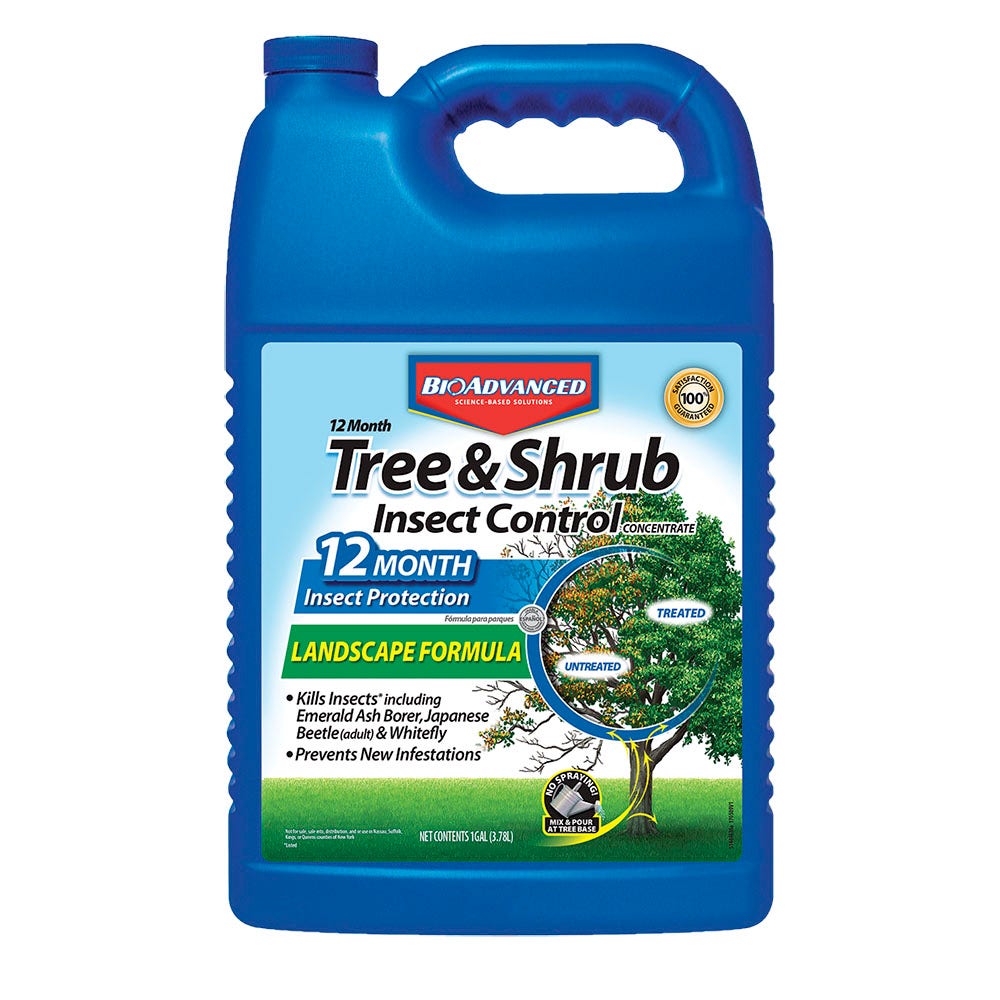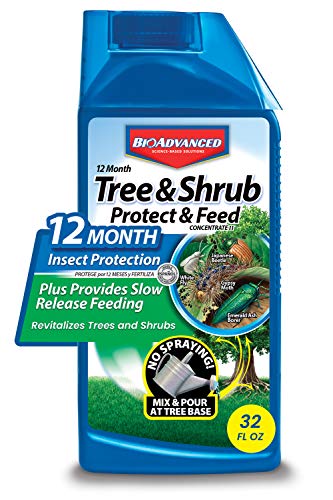Insecticide For Shrubs
The plant boom of recent years has spawned a renewed interest in the home landscape. As the number of certified nurseries in the Southeast increases, an increasingly diverse array of ornamental plants is finding its way into both the home yard and the commercial landscape. Although many contractors and weekend gardeners expect shrubs to be relatively maintenance-free, they often realize too late that each plant in the landscape is the favorite food of some menacing insect or mite pest.
Fortunately, insect and mite pests are not usually fatal to their shrub hosts. In fact, it often takes several years for damage by scale insects, mealybugs, and other sucking insects to become noticeable. Pest populations may go unobserved for years, flair up suddenly, and then recede again. For the homeowner and the commercial landscape maintainer, the complete eradication of a pest species often is not vital to the continued beauty of a landscape. Only in a commercial nursery, where the grower has a responsibility to provide uninfested plants to the public, should an earnest attempt be made to kept nursery stock completely free of noxious plant pests.
Minor insect damage may be easily mistaken for a disease, drought, or fertilizer problem. The symptoms can be strikingly similar: chlorosis, wilting, and die-back; as a result, it is not uncommon for insect pests to inflict extensive damage before their presence is realized. Therefore, the firs step toward the alleviation of the problem must be the first step toward the alleviation of the problem must be pest identification. It is for this purpose that descriptive keys to insect and mite life stages are provided in this introductory section.
Control of Insect and Related Pests
Information concerning the type of pest, its feeding habits, and its life cycle remains essential in determining the appropriate insecticide to use as well as the rate and method of application that will achieve satisfactory control. Since not all insects and mites are a threat to plants, a suspected pest will occasionally be recognized as a harmless or even beneficial species. Consequently, the information within this volume is geared to pest identification and responsible control decisions.
Types of Pesticides
Insect feeding habits determine, to some extent, the type of control chemical used. Pesticides can be classified as stomach poisons, contact-residuals, or fumigants; only the first tow groups will be discussed here. Fumigants must be used in enclosed areas and have very little application to landscape maintenance or typical commercial nursery conditions.
Chewing insects, such as caterpillars, beetles, and grasshoppers, are the targets of stomach poisons. A diverse array of botanical, organic, and inorganic chemicals make up this group. Stomach poisons must be ingested to kill pests. Since piercing-sucking pests (aphids, mites, leafhoppers, etc.) feed below the plant surface, they may avoid contact with stomach poison pesticides. However, contact-residual chemicals, such as malathion, kill a wider range of pests. Such chemicals poison insects or mites that crawl on treated surfaces, eat treated leaves, or are sprayed directly.
The length of time a pesticide lasts depends to some extent on the chemical group to which it belongs. Materials like the plant-derived pesticide pyrethrin may last less than 1 hour, although similar synthetic pesticides are now being made that linger considerably longer. In general, an insecticide classified as a chlorinated hydrocarbon is long-lasting. A good example is chlordane, which is applied to the soil for termite control. Such a treatment may be effective for several decades. The majority of pesticides recommended for insect and mite control on shrubs belong to the related organophosphate and carbamate groups. Less persistent than chlorinated hydrocarbons, most organophosphates and carbamates do not remain effective for more that 1 to 4 weeks. Many of the organophosphates and carbamates are systemic and may give 6 or more weeks of residual activity in treated plants.
Insecticide For Shrubs
Shrubs are a great addition to any yard, as they can provide a lot of shade and privacy. But if you have shrubs in your yard, then you’ll know that they’re often susceptible to pests, such as ants and aphids. If you want your shrubs to be pest-free and healthy, then you should use an insecticide for shrubs.
Insecticides for shrubs come in the form of sprays or granules. Sprays are good for larger areas, but not for smaller ones like within the branches of a bush. The granules work best when applied directly to each branch or leaf of the plant itself. They’re also easier to apply because they don’t require mixing with water before use.
List Of Insecticide For Shrubs
- 3-in-1 FORMULA: Insect, disease, and mite control for use on roses, flowers, shrubs and trees
- INSECT KILLER: Kills Aphids, Spider Mites, Japanese Beetles, Caterpillars, and more
- DISEASE CONTROL: Fungicide controls Black Spot, Powdery Mildew, and more
- RAINPROOF PROTECTION: Systemic rainproof protection lasts up to 14 days
- COVERAGE AREA: Treats up to 192 roses
- RESTRICTIONS: Not for sale in NY
Additional Info :
| Color | White |
| Item Dimensions | |
| Height | 1 Inches |
| Width | 1 Inches |
| Length | 1 Inches |
| Weight | 2.4 Pounds |
| Release Date | 2021-11-11T00:00:01Z |
- 12 MONTH PROTECTION: With just one application, kills listed insects and prevents new infestations for up to a year
- INSECT & PEST KILLER: Kills Japanese Beetles, Emerald Ash Borers, Adelgids, Leafminers, Aphids, Caterpillars, and more
- SLOW-RELEASE FERTILIZER: Plant food and fertilizer improves the health of your trees and shrubs
- SYSTEMIC PROTECTION: Protects your potted and outdoor trees and shrubs from the roots to the stem of every leaf
- RESTRICTIONS: Product intended only for non-bearing fruit and nut trees. Non-bearing fruits and nuts are plants that do not bear edible fruits and nuts for at least 12 months after application of pesticides. Not for sale in NY, CT, MD & VT.
Additional Info :
| Color | Concentrate |
| Item Dimensions | |
| Height | 10.3 Inches |
| Width | 2.7 Inches |
| Length | 4.7 Inches |
| Weight | 2.3 Pounds |
- For use on outdoor trees and shrubs, including listed fruit and nut trees
- Controls aphids, emerald ash borers, Japanese beetles, birch leaf miners and other listed insects for up to 12 months with one application
- Insecticide absorbed through the roots and into the plant for protection that won’t wash off
- Mix 1.47-percent Imidacloprid concentrate with water and pour evenly around the base of the tree or shrub
- For use on outdoor trees and shrubs, including listed fruit and nut trees
- Controls aphids, emerald ash borers, Japanese beetles, birch leaf miners and other listed insects for up to 12 months with one application
- Insecticide absorbed through the roots and into the plant for protection that won’t wash off
- Mix 1.47-percent Imidacloprid concentrate with water and pour evenly around the base of the tree or shrub
- Mix 1.47-percent Imidacloprid concentrate with water and pour evenly around the base of the tree or shrub
Additional Info :
| Item Dimensions | |
| Height | 11.88 Inches |
| Width | 7.5 Inches |
| Length | 4.25 Inches |
| Weight | 8.6 Pounds |
- INSECT KILLER – This pest control is great for use on adelgids, aphids, bronze birch borers, emerald ash borer, leaf miners, scale, and many other species of bug. Will also prevent new infestations.
- SOIL DRENCH APPLICATION – Concentrate dissolves in water allowing the insecticide to move through the root zone. Once in the roots, it moves up through the tree or shrub providing protection from insects. Also provides protection for new growth.
- FOLIAGE PROTECTOR – Designed for use on listed fruit, nut and ornamental trees and shrubs.
- WON’T WASH AWAY – Tree and Shrub Insect Control is rainproof within hours. For best results, spray with enough time for it to completely dry before it rains. Will not wash off after it has dried.
- EASY APPLICATION – Product quickly mixes with water and should be applied by pouring or with backpack, compression, knapsack or tank type sprayers. Carefully read and use according to label directions.
Additional Info :
| Color | LAWNGARD |
| Item Dimensions | |
| Height | 11.8 Inches |
| Width | 7.5 Inches |
| Length | 4.5 Inches |
| Weight | 8.2 Pounds |
- INSECT KILLER – This pest control is great for use on adelgids, aphids, bronze birch borers, emerald ash borer, leaf miners, scale, and many other species of bug. Will also prevent new infestations.
- SOIL DRENCH APPLICATION – Concentrate dissolves in water allowing the insecticide to move through the root zone. Once in the roots, it moves up through the tree or shrub providing protection from insects. Also provides protection for new growth.
- FOLIAGE PROTECTOR – Designed for use on listed fruit, nut and ornamental trees and shrubs.
- WON’T WASH AWAY – Tree and Shrub Insect Control is rainproof within hours. For best results, spray with enough time for it to completely dry before it rains. Will not wash off after it has dried.
- EASY APPLICATION – Product quickly mixes with water and should be applied by pouring or with backpack, compression, knapsack or tank type sprayers. Carefully read and use according to label directions.
Additional Info :
| Color | Concentrate |
| Item Dimensions | |
| Height | 9.8 Inches |
| Width | 2.3 Inches |
| Length | 4.8 Inches |
| Weight | 2.1 Pounds |





